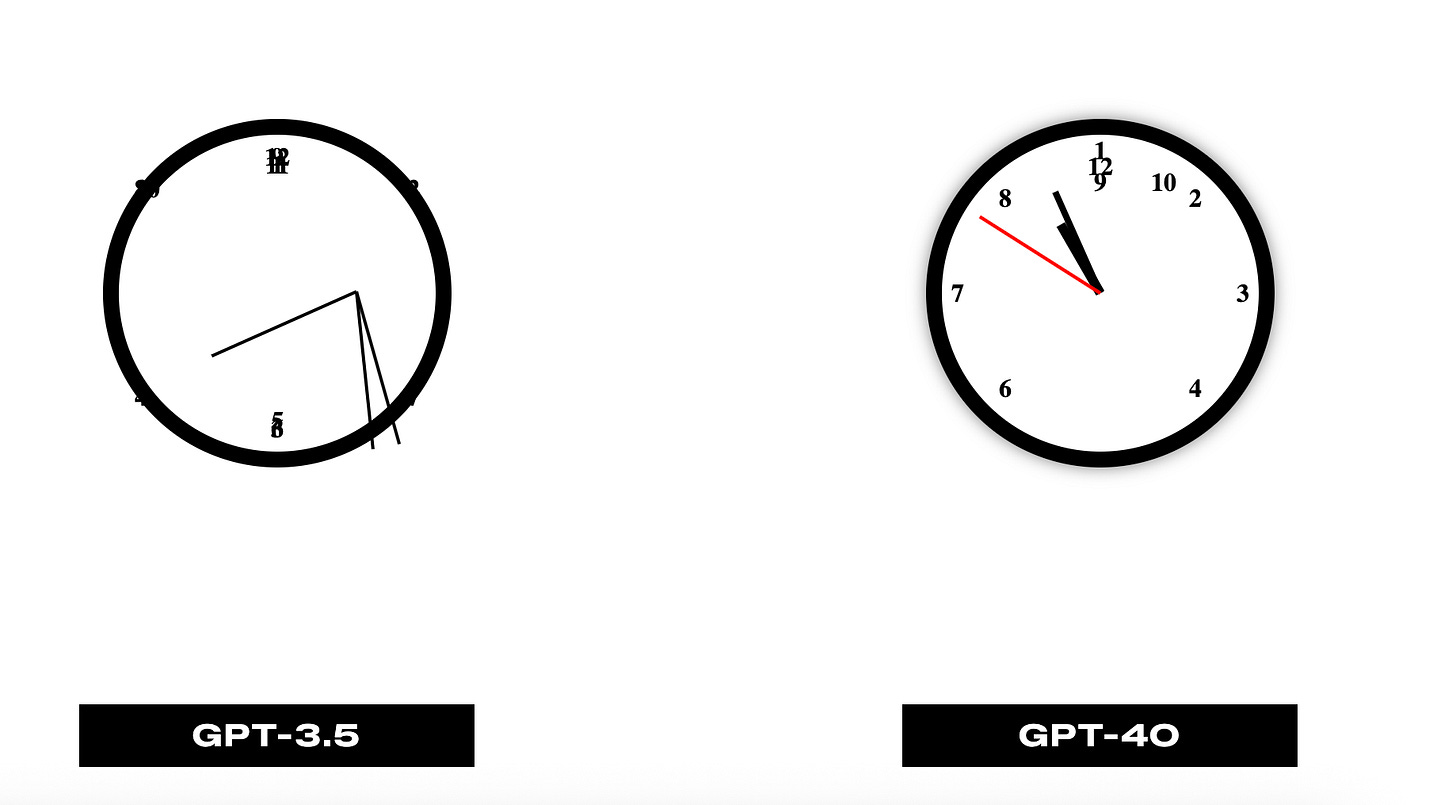Pennies in the trash, the CIA and Paris Review, and why AI can’t handle clocks. Plus Uri Bram on his party game, Person Do Thing; communications and the curse of knowledge problems; Amazon recommendations as a social networking tool; and his recent viral blog post, “21 Facts About Throwing Good Parties.”
Doomberg
It’s not everyday I interview an animated bird on Zoom for a conference, but hey, that’s the life of a writer au capital venture in 2025. I recently interviewed Substack-extraordinaire Doomberg for the SOSV Climate Tech Summit, covering topics like the future of natural gas and whether climate change is, like, real real or just real, or just… you know, they say that “a bird in the hand is worth two in the bush,” so you be the judge of whether I got a handle on this interview.
From around the web
1. My two cents is now a nickel (inflation!)
Let’s start this week with an ode to the penny… Actually, I have nothing nice to say. You probably don’t either. But whether you supported the Americans for Common Cents (pro-penny thanks to pro-zinc forces) or the anti-forces of “it just makes sense” — the demise of the penny is an historic moment for America and the English language. A penny for your thoughts is becoming a quarter — and no one wants to pay that much for a thought (hence why the Riskgaming newsletter is free).
This week, our scientist-in-residence Sam Arbesman recommends Caity Weaver’s look at what will happen to the 300 billion circulating pennies after the government decided to abruptly stopped minting them. Surprise! There is no plan whatsoever. According to Caity, the government is essentially abandoning responsibility for the massive stockpile sitting in American homes and businesses, treating it as they always have: the public’s problem.
Most pennies produced by the U.S. Mint are given out as change but never spent; this creates an incessant demand for new pennies to replace them, so that cash transactions that necessitate pennies (i.e., any concluding with a sum whose final digit is 1, 2, 3, 4, 6, 7, 8 or 9) can be settled. Because these replacement pennies will themselves not be spent, they will need to be replaced with new pennies that will also not be spent, and so will have to be replaced with new pennies that will not be spent, which will have to be replaced by new pennies (that will not be spent, and so will have to be replaced). In other words, we keep minting pennies because no one uses the pennies we mint.
2. Cover stories
Sam also liked Dan Piepenbring’s interview with Lance Richardson, who recently published a biography of Peter Matthiessen, the man who co-founded The Paris Review in 1951 while working undercover for the CIA. Richardson explores whether the CIA ever directly funded the magazine and how Matthiessen grappled with shame over his intelligence work. The interview is a nice reminder of the ways in which American literary culture has — and hasn’t — changed.
The problem with Matthiessen’s cover soon became clear—the labor of a writer is pretty invisible to the outside world. It looks like we’re just sitting inside and not doing anything at all. Matthiessen’s handler told him he needed a visible profession. And one day in one of the cafés he runs into Harold “Doc” Humes, another American who was running a magazine called the Paris News Post, which he had acquired for six hundred bucks, because that was the trend among expats in postwar Paris. Everyone had a little magazine going in that time—there was Merlin, Points, Zero.
Humes was a real character, a bit of a loose cannon. He was wearing a cape when Matthiessen saw him at the café that day. He brought on Matthiessen as his fiction editor. But Matthiessen saw the Paris News Post as a lightweight endeavor. He suggested one day to Doc that they flick it off and make something better.
3. Devil in the details
Speaking of spies, Robert McMillan’s reporting on the effort to take down a North Korean hacker known as “Hades” has all the twists and turns of a thriller. This year, two former FBI cybersecurity researchers finally got him by posing as an employer and offering him a programming job. As it turns out, the hacker was now working as one of North Korea’s thousands of IT workers who assume fake identities to obtain legitimate work with Western corporations.
Last year, North Korea made as much as $800 million from its thousands of worldwide IT workers, who assume fake identities and obtain jobs with Western corporations, according to a report by 11 countries that are monitoring North Korea’s sanction violations. Workers can make as much as $100,000 a month, much of which is funneled back to support agencies such as the RGB [Reconnaissance General Bureau] spy agency.
4. Bad timing
AI has a time problem. Just check out artist Brian Moore’s “AI World Clocks” page. Every minute, nine different AI models are asked to generate a new analog clock showing the current time. The results have me puzzling over what, exactly, makes this exercise so complicated for our AI overlords — and gives me hope that humans may at least count on steady employment as railroad conductors for decades to come.
5. Mind the gap
Finally, Manish Singh offers a new way to look at the Indian economy. The country’s per-capita income is around $2,400 for 2025, but this figure masks extreme fragmentation. In fact, the country really functions as nine distinct economies, with the top three urban cohorts (wealthy, affluent, and emerging) representing only 15% of households but commanding 68% of total income. This concentration means India’s consumption growth story centers on a small, rapidly expanding urban cluster whose spending patterns increasingly resemble middle-income Asian economies, while the majority remains stuck in lower income bands due to a lack of job creation.
The behaviour and expansion of these cohorts have a direct implication for India’s consumption story. For consumer brands, the practical addressable market over the next decade is less “1 billion Indians” than a set of dense urban corridors whose income pools, in CLSA’s mapping, already resemble entire economies such as Brazil, South Korea, Switzerland or Sweden rather than the national average.









Love this!